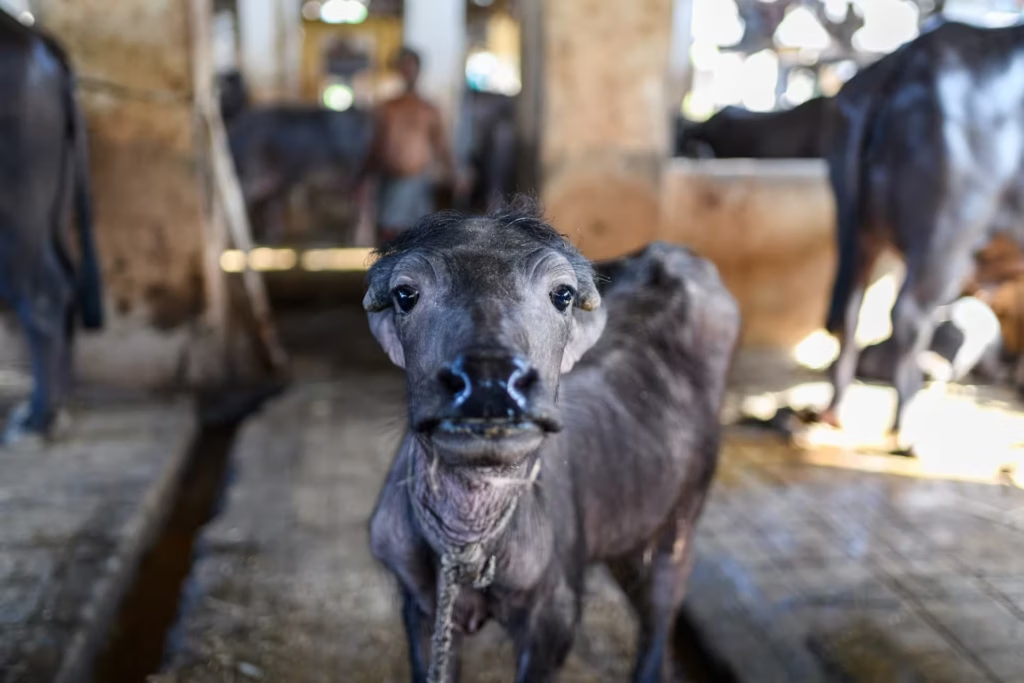Animal welfare has become an increasingly pressing issue in India, as the country wrestles with outdated legislation that fails to adequately protect its animal population. The Prevention of Cruelty to Animals Act, 1960 (PCA Act) stands as the primary legal framework for animal protection in India. However, the need for reform is urgent, highlighted by campaigns like #NoMore50, which advocates for stronger penalties and a comprehensive update to the PCA Act through the proposed PCA Amendment Bill, 2022.
Introduction to the PCA Act, 1960
The PCA Act was enacted over six decades ago, marking a significant step towards animal welfare in India. At its inception, it was a progressive law that established a statutory duty of care for individuals responsible for animals and created institutions like the Animal Welfare Board of India (AWBI) to oversee its implementation. The Act outlines various acts of cruelty and their corresponding penalties, which were intended to deter mistreatment of animals.
Limitations of the Current Law
Despite its historical significance, the PCA Act has not been amended since its enactment, rendering it ineffective in today’s context. The most glaring limitation is the maximum penalty of ₹50 for severe offenses, which is grossly inadequate and fails to reflect the seriousness of animal cruelty. This minimal fine does not deter potential offenders and undermines the gravity of crimes against animals. Reports indicate that animal cruelty cases are on the rise, with activists filing police reports daily, highlighting a systemic failure in enforcing meaningful consequences for such actions.

The #NoMore50 Campaign
The #NoMore50 campaign emerged as a grassroots movement advocating for the amendment of the PCA Act. Launched by animal rights activists and organizations, it aims to raise awareness about the inadequacies of current penalties and push for legislative reform. The Author of this blog and his family members participated in one of the many peaceful walks conducted nationwide to spread awareness about the #NoMore50 campaign, making this cause a deeply personal commitment rather than an abstract concept limited to mere literature.
The campaign has garnered significant public support, with hundreds of thousands signing petitions demanding action. Additionally, over 140 Members of Parliament have expressed their backing for the amendment bill, emphasizing its importance not only for animal welfare but also for public health and safety .
The current (2024) Cohort of the Ahimsa Fellowship remains actively engaged in contacting Members of Parliament (MPs) and Members of Legislative Assemblies (MLAs) on a daily basis to garner further support for the PCA Amendment Bill, 2022. This initiative reflects their commitment to advocating for stronger animal protection laws in India and highlights the importance of legislative backing in advancing animal welfare reforms in India.

The PCA Amendment Bill, 2022
The proposed PCA Amendment Bill, 2022 seeks to address these critical shortcomings by introducing several key features:
-
- Enhanced Penalties: The bill proposes significantly increased fines ranging from ₹1,000 to ₹75,000 for various offenses. For severe cases like “gruesome cruelty,” penalties could include imprisonment of up to five years.
-
- Recognition of Fundamental Freedoms: It introduces five fundamental freedoms for animals, ensuring they are free from thirst, hunger, discomfort, pain, fear, and distress.
-
- Cognizable Offenses: New categories of offenses will be classified as cognizable, allowing law enforcement to arrest offenders without a warrant.
-
- State Animal Welfare Boards (SAWBs): The bill proposes the legal basis for establishing SAWBs to oversee animal welfare initiatives at state levels.
Despite these advancements, the bill’s progress has been slow due to bureaucratic hurdles and political inertia. Advocates emphasize that immediate action is necessary to bring this bill before Parliament.
Challenges to the Bill
The PCA Amendment Bill, 2022 is currently facing significant challenges in getting tabled in Parliament, despite widespread support from animal welfare advocates and a large section of society. Although inter-ministerial consultations have occurred and a multitude of Members of Parliament have already urged the Prime Minister’s Office for its passage (and more keep joining their ranks every week), the bill remains stalled due to slow legislative priorities and other matters taking precedence. This delay is concerning, as it overlooks the gravity of the issues surrounding animal cruelty, which continue to escalate, and the ramifications of unchecked animal abuse extend far beyond the immediate suffering of animals, i.e. the human cost of such a delay.
Why the Amendment is Essential
The urgency for reform extends far beyond mere legal updates; it addresses a pervasive societal issue that intertwines with the fabric of human behavior. Extensive research underscores a significant correlation between animal cruelty and various forms of violence against humans, establishing a troubling nexus that demands immediate attention. Studies have consistently shown that individuals who engage in acts of cruelty towards animals are statistically more likely to exhibit violent behaviors towards humans.
For instance, a landmark study by the Massachusetts Society for the Prevention of Cruelty to Animals revealed that those who abuse animals are five times more likely to commit violent crimes against people, highlighting a critical warning sign for potential future violent behavior.

This connection is not merely anecdotal; it is supported by psychological theories that explore the motivations behind such cruelty. The desensitization to suffering and the power dynamics involved in animal abuse can often manifest as aggression towards humans.
Moreover, real-world cases provide stark illustrations of this link: incidents of domestic violence frequently involve acts of cruelty towards pets or livestock, with abusers using threats or actual harm to animals as a means of exerting control over their victims. Research indicates that 89% of women in abusive relationships reported that their pets were threatened or harmed by their partners, a tactic used to instill fear and maintain dominance.
Strengthening animal protection laws is thus not only crucial for safeguarding animals but also for fostering a more humane society overall. By addressing animal cruelty through robust legal frameworks, we can potentially disrupt cycles of violence that extend into human relationships. The implications of neglecting this connection are profound; failing to take animal abuse seriously under the law risks perpetuating a culture where violence is normalized, ultimately endangering both animals and vulnerable human populations. Therefore, reforming the PCA Act is an essential step towards creating a safer and more compassionate society for all beings.
How You Can Contribute
You, the dear reader, can play an active role in advocating for this essential reform by:
-
- Writing to MPs: Engaging with local representatives can amplify calls for legislative action.
-
- Signing Petitions: Supporting online petitions related to #NoMore50 helps demonstrate public demand for change.
-
- Participating in Campaigns: Joining or supporting initiatives focused on animal welfare can raise awareness and mobilize community action.
- Apply to the Ahimsa Fellowship: You can apply to join the Ahimsa Fellowship for the 2025 Cohort, and become part of a transformative movement dedicated to animal protection. This program offers a unique opportunity to learn effective advocacy and policy engagement, equipping you with the skills to make a meaningful difference in the lives of animals.
By taking these steps, individuals can contribute significantly to advancing animal rights in India.


